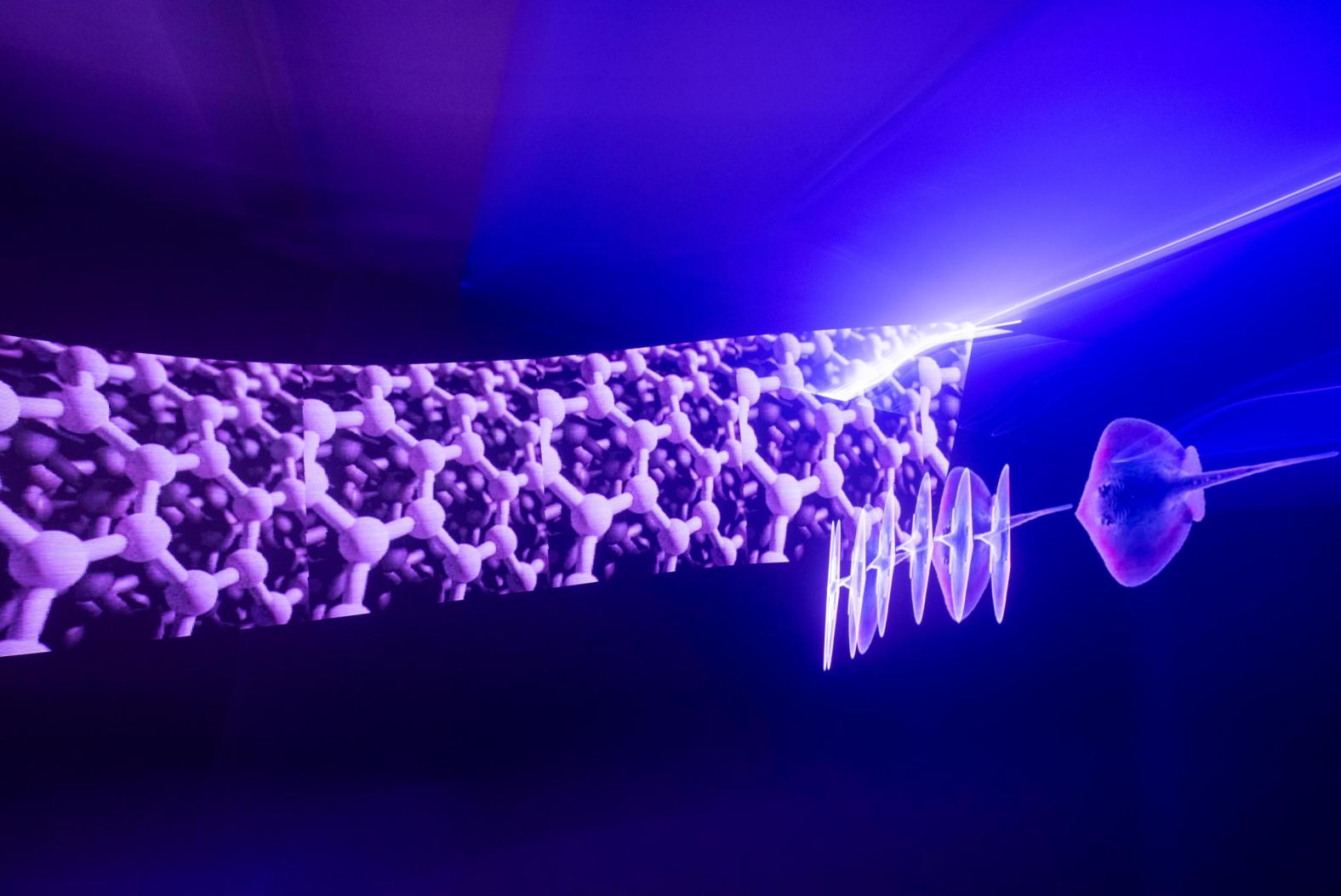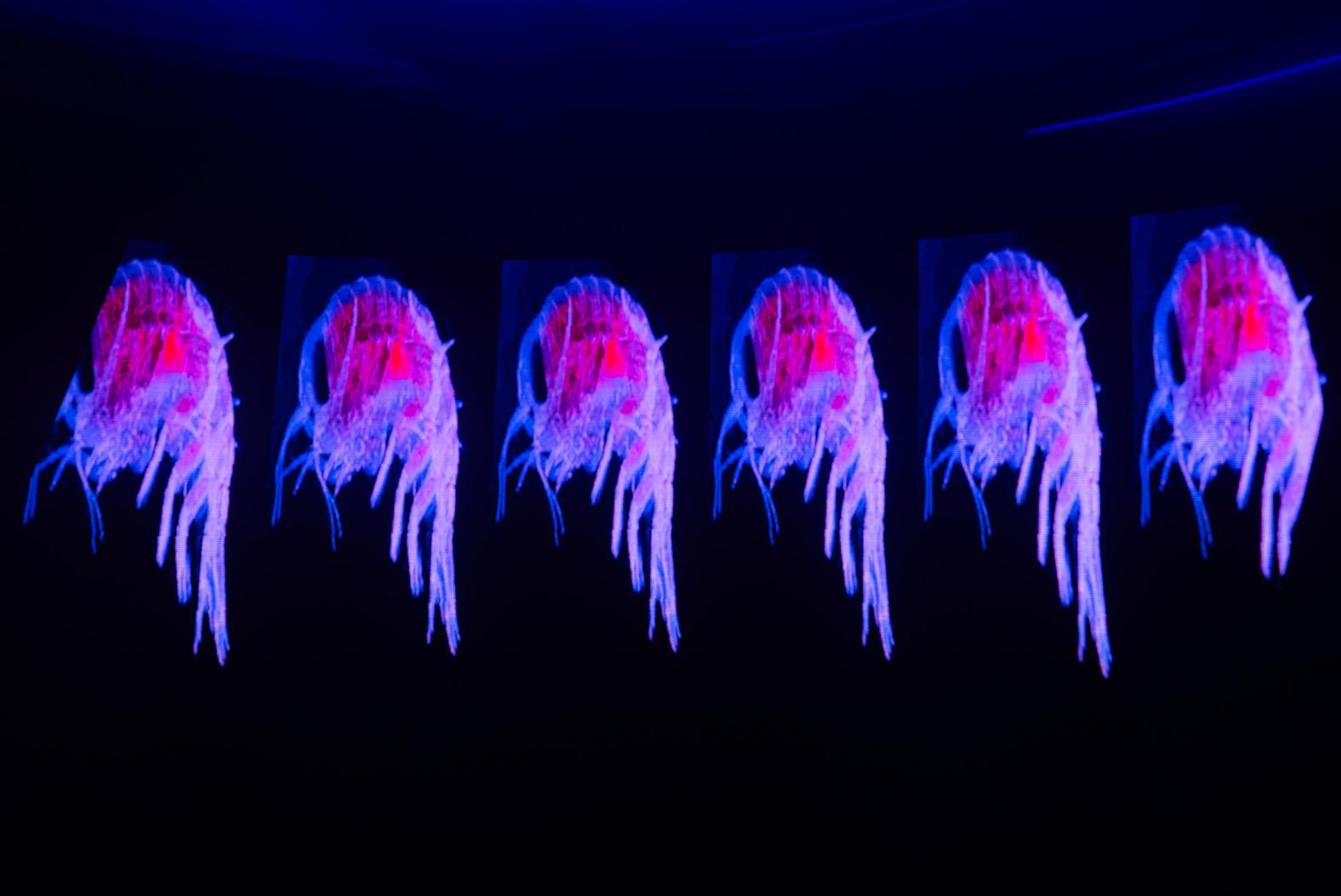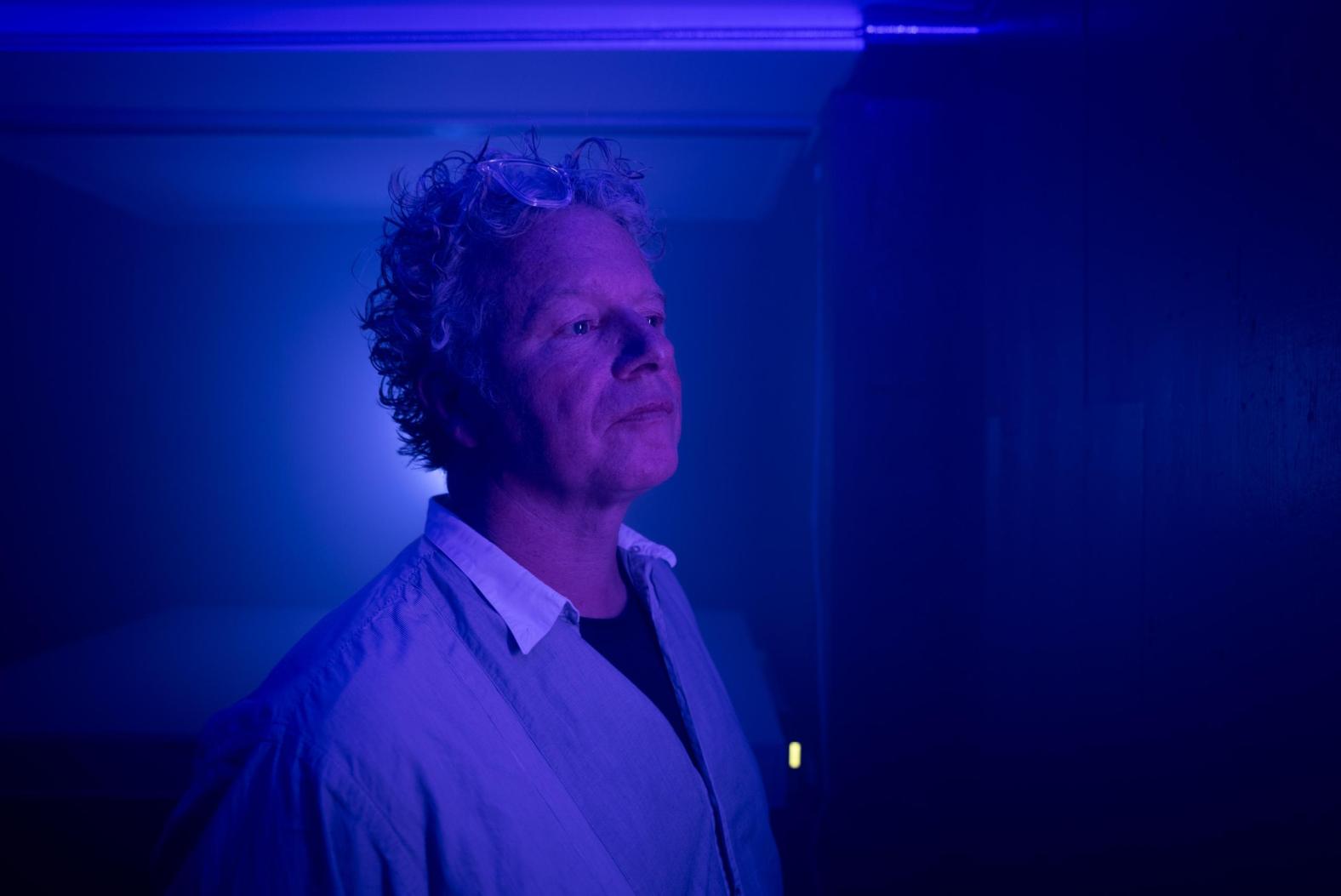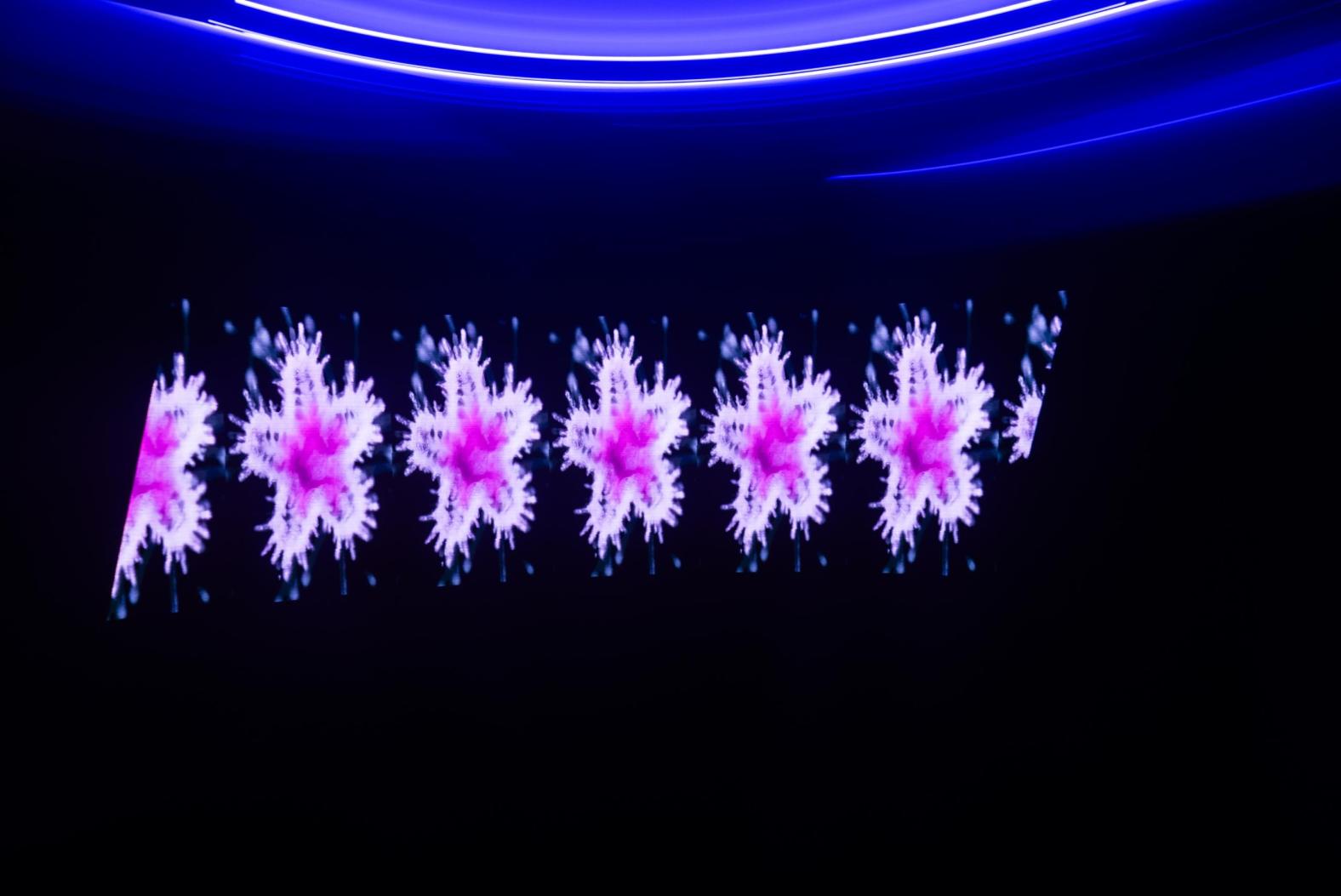
Chris Levine unveils new artwork in partnership with Convex Seascape Survey to highlight the health of our oceans on World Ocean Day.
Globally renowned British light artist, Chris Levine has collaborated with the Convex Seascape Survey to create an immersive artwork that delves underwater and introduces viewers into the lesser-known role that the ‘Benthic Zone’ plays in the health of our oceans.
Titled ‘7.83 Hertz,’ and timed for World Ocean Day on Saturday, June 8th, Levine’s installation spotlights the mysteries of how the ocean’s continental shelves, sedimentary seafloor and the creatures therein, form part of the slow carbon cycle, and play a vital role in the global ecosystem.
This echoes the work of the Convex Seascape Survey – a pioneering, five-year, multi-million dollar research initiative spearheaded by ocean conservation charity Blue Marine Foundation, University of Exeter and Convex Group Limited. Led by a team of experts, the project aims to harness nature’s hidden superpower in helping combat climate change by uncovering the ocean’s potential as a carbon sink. It will deliver new, reliable open-source data which will educate, inspire and enable informed decisions on ocean use.


